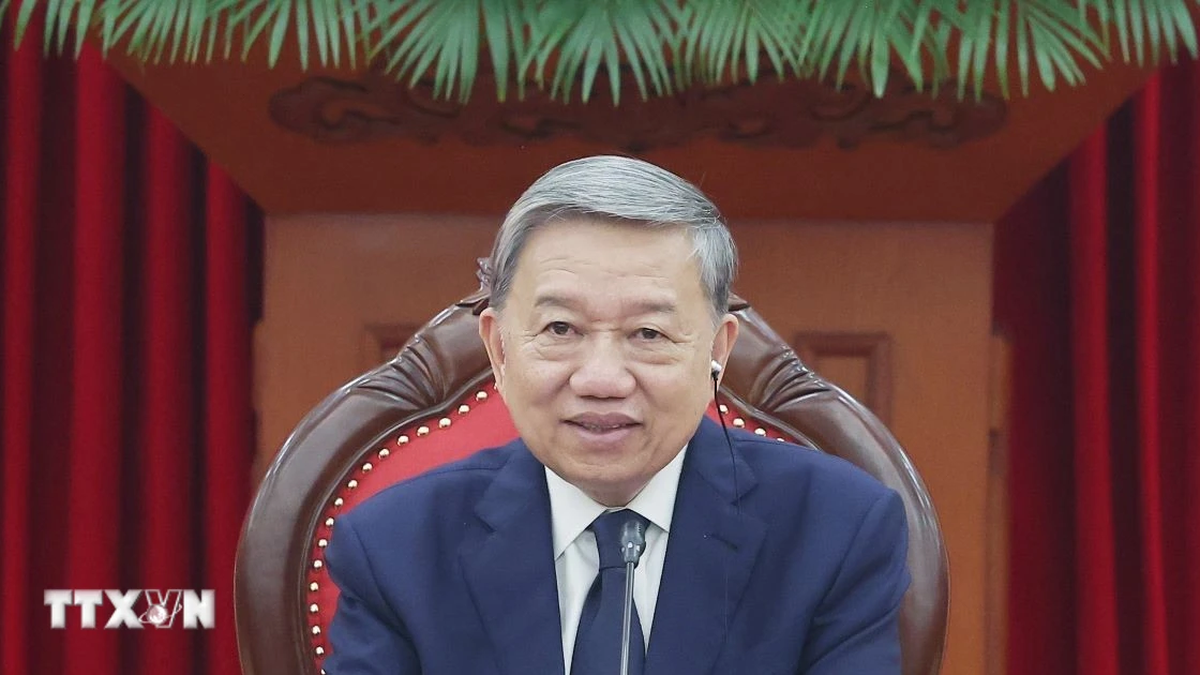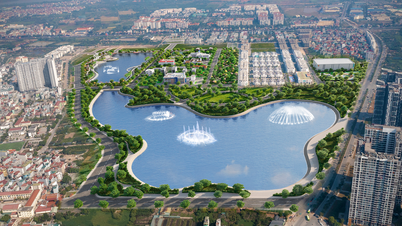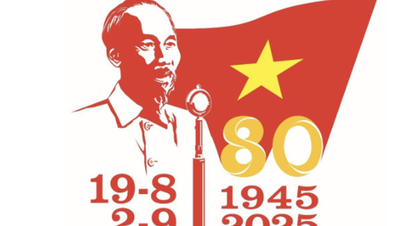This trend is taking place in the context that a number of large cities are implementing and will implement solutions to limit motorbikes using fossil fuels, in order to reduce emissions, protect the environment and promote sustainable development.

Accelerate strongly after the "push"
The domestic two-wheeled vehicle market continued to grow strongly in the first half of 2025. According to Motorcycles Data, by June 2025, total sales of two-wheeled vehicles reached about 1.6 million units, up 19% over the same period; electric two-wheeled vehicles alone increased by more than 18%. In addition to technical advantages, electric vehicles have advantages thanks to consumers' increasing concern about the environment, low operating costs and rich connectivity utilities...
VinFast , the company with the dominant market share, had a favorable business performance in the first 6 months of the year, with sales of electric motorbikes and electric bicycles increasing by 501%, reaching 114,484 units compared to the same period in 2024. Other brands such as Yadea, Dibao, Pega, Espero also recorded significant increases; Yadea alone increased by 37.5%, thanks to stable domestic production infrastructure and the positive reception of Vekoo and Velax models, helping to continue to expand market share.
Japanese companies such as Honda and Yamaha have also begun to enter the electric vehicle segment. In 2025, Honda will launch two new models: ICON e: (equivalent to a 50cc motorbike) priced at around VND27 million, and CUV e: (equivalent to 125cc) with a rental package of over VND1.4 million/month. Notably, ICON e: is assembled right at the Honda Vietnam factory in Phu Tho.
In the third quarter, the market continued to flourish as car manufacturers stepped up their marketing campaigns to welcome the peak shopping season for the new school year. Notably, this period unexpectedly received an unprecedented "push" from Directive 20/CT-TTg of the Prime Minister on the urgent and drastic task of preventing and handling environmental pollution. The Directive clearly states that from July 1, 2026, there will be no motorbikes and scooters using fossil fuels in Ring Road 1; from January 1, 2028, there will be no motorbikes and scooters, and personal cars using fossil fuels will be restricted from circulating in Ring Road 1 and Ring Road 2; from 2030, the implementation will continue to be expanded in Ring Road 3.
Immediately after Directive 20 was announced (mid-July), the domestic electric motorbike market almost “transformed”. This regulation not only opened up great opportunities for pure electric motorbike manufacturers but also forced many traditional motorbike businesses to adjust their business strategies. Many people living in the Ring Road 1 area of Hanoi have started to switch to electric motorbikes, to avoid having to change their motorbikes later.
Since mid-July, electric vehicle chains in Hanoi have recorded a significant increase in the number of customers coming to consult and buy vehicles. The Viet Thanh Electric Vehicle System said that in July alone, electric motorbike sales increased by 55% compared to June and increased by 4% compared to the same period last year. Due to increased demand, the system plans to open many new points of sale, concentrated in the area within Ring Road 1. Similarly, a sales staff at the Honda Doanh Thu dealership on Nguyen Khanh Toan Street said that the ICON e model: "every unit is sold out", in stark contrast to the slow consumption in June. Notably, many customers also withdrew deposits for gasoline motorbike models - a situation that rarely happened before.
Multidimensional market response
Faced with the market's turning point, car manufacturers quickly launched new strategies. Notably, VinFast's "Gasoline Collection - Electricity Exchange" campaign allows customers to exchange their old gasoline motorbikes for new electric motorbikes on the spot, with many incentives. This approach was immediately noticed and learned by other manufacturers: Yadea plans to launch the program on August 16 and 17, while Honda said it is researching a similar plan. In addition, VinFast also focuses on developing and introducing car models that are more suitable to the needs of the domestic market with the latest product being the Evo Grand (priced from VND 18 million for the Lite version and VND 21 million for the standard version) launched on July 24.
Currently, VinFast is also the manufacturer with the most diverse portfolio of two-wheeled electric vehicles in the domestic market, spanning many price segments, from about 12 million VND (Motio) to nearly 57 million VND (Theon S).
Many manufacturers have also chosen their own path. In early August, Neo's - Yamaha's only electric motorbike model in Vietnam - was adjusted to nearly 30 million VND, nearly 20 million VND lower than the original listed price. This is the sharpest reduction since Neo's was launched at the end of 2022. Although highly appreciated for its quality, the high selling price in the past has been a barrier that makes it difficult for the model to reach the majority.
Suzuki is also starting to move forward with electrified products. The company recently registered industrial design protection for a number of two-wheeled electric vehicle models in Vietnam, including the e-Address - an electric version of the Address 125. Piaggio Vietnam, which currently has no electric vehicle models, also said it is building its own strategy for the market, but has not disclosed details. Previously, the company had tested the Piaggio One on domestic roads many times but has not officially sold it.
Although sales growth depends largely on each company's strategy and how local authorities address challenges in supporting vehicle conversion, charging infrastructure, battery swapping, etc., it can be said that the strict roadmap and clear deadline from Directive 20 have brought optimistic forecasts about the market's progress. Many manufacturers have taken long-term steps, such as Honda, which has produced the first ICON e: models at its Phu Tho factory since March 2025, while also accelerating infrastructure construction and implementing fast battery swapping services - an important premise to boost sales.
The Vietnamese two-wheeled electric vehicle market is facing a “golden” opportunity. The picture of green - clean - smart urban traffic is gradually taking shape on familiar streets. However, in order for zero-emission vehicles to become the main means of transport, it is still necessary to remove bottlenecks in infrastructure, policies and especially to strengthen consumer confidence.
Source: https://hanoimoi.vn/thi-truong-xe-may-dien-viet-nam-cuoc-dua-moi-da-bat-dau-712717.html




























![[Photo] The special solidarity relationship between Vietnam and Cuba](https://vphoto.vietnam.vn/thumb/1200x675/vietnam/resource/IMAGE/2025/8/15/5f06c789ab1647c384ccb78b222ad18e)
![[Photo] Binh Khanh Bridge Ho Chi Minh City is ready to reach the finish line](https://vphoto.vietnam.vn/thumb/1200x675/vietnam/resource/IMAGE/2025/8/14/b0dcfb8ba9374bd9bc29f26e6814cee2)

![[Photo] Firmly marching under the military flag: Ready for the big festival](https://vphoto.vietnam.vn/thumb/1200x675/vietnam/resource/IMAGE/2025/8/15/86df2fb3199343e0b16b178d53f841ec)


































































Comment (0)